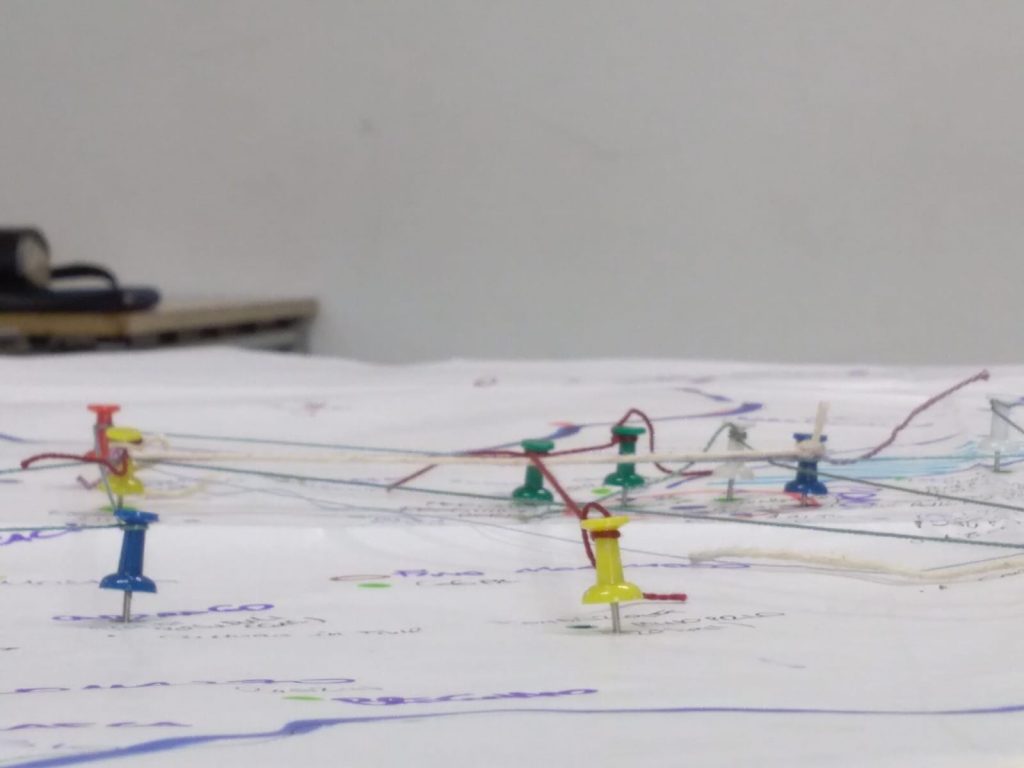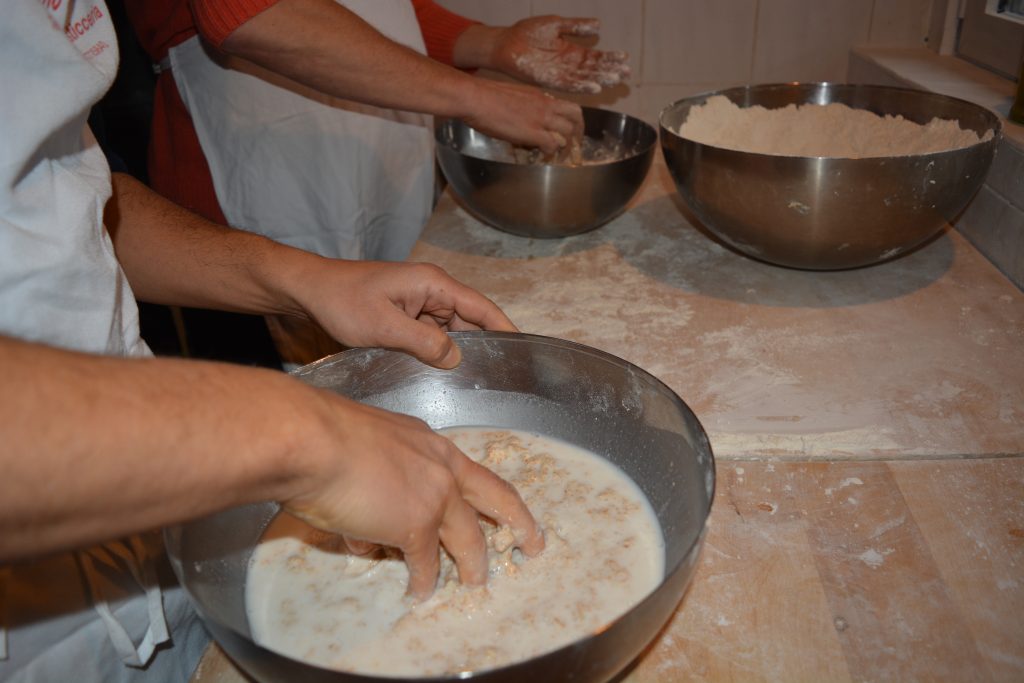Article by our member Chiara Bonifazi, Solidarius Italia.
In Italy the experimentation started in January 2020 with 11 trainers among VET teachers and Social Solidarity Economy operators and 2 areas involved. We are in Lombardy, in the provinces of Como and Bergamo, in Northern Italy.
The training days are concentrated during the weekends, from Friday afternoon to Sunday after lunch; we are hosted – both in Bergamo and Como – by a Professional Training Centre and in Como the young people attending the catering courses also prepare lunch for us.
The two experiences started in a parallel way, the small groups immediately appear very involved and motivated. The diversity of backgrounds arouses curiosity and soon reveals the potential of the meeting between the two worlds: that of vocational training and that of the SSE.
We started with a collective mapping work to identify in the territories all the realities (associations, schools, companies, etc.) and the people with whom the participants are in contact and with whom we could get in touch during the months of training in order to reach the goal we have set ourselves, that is, to let the SSE enter the world of Vocational Training.
It will be a training in action strongly anchored to local contexts and to the progressive enlargement of the people to be involved: the moment of context analysis is therefore fundamental.

The mapping work is followed by the analysis of flows (economic, power and knowledge) which helps us to take a deeper look at the links existing in the territory (the various nodes on the map are connected with threads of different colour and thickness) and to identify their limits and potential. Thanks to this work of analysis and reflection on the concrete possibilities of action of each group in training, 2 sectors of vocational training are chosen from which to undertake the challenge towards change.

In Como it is decided to work on the Bakery and Pastry sector and the research action starts: between one session and the other the participants interview VET trainers working in the sector, small entrepreneurs (from SSE and not) and attend a bakery workshop at a small bakery linked to the SSE world. They have the opportunity to reflect on the principles and values of the SSE, the alternative ways of being an entrepreneur, the specific skills required and their role as trainers.
When the Covid-19 pandemic forced us to continue the activities at a distance, the group gathered enough ideas and suggestions to build some didactic materials to offer to other trainers. During a month and a half, through some meetings and group work, we created a training path for trainers, a path articulated in 4 thematic areas, with bibliographical advice and didactic activities to propose to the students; a path in which we want to gradually deconstruct the mainstream economic imaginary, addressed to trainers who want to transform their way of working.
In Bergamo, on the other hand, we decided to work on the Agriculture and Commerce sector, but since the city is one of the most affected by the health emergency, research and action is inevitably penalised: without being able to make meetings and field visits, we decide to make the most of the participants’ experiences and use them as case studies. The group decides to set up a Learning Unit for the 1st and 2nd year of training in agricultural and commercial courses. At the centre is the theme of product labels, to analyse their origin and the quality of the supply chains: the group builds a transversal didactic path that involves all the subjects and involves the students in an action training course. There will be group activities, role-playing games, presentation and creation of digital materials, but also field visits to get to know the SSE realities of the area and reconstruct the local supply chains.
The experimentation in Italy, which ended in June 2020, strongly suffered the consequences of Covid, but we managed to maintain the general dynamic and participatory approach to training and above all to create a motivated training community that from the beginning was willing to enter a process of transformation and let itself be guided with confidence.
“I didn’t always perceive the direction we were going in – said one trainee- but everything became clear in the end”.














